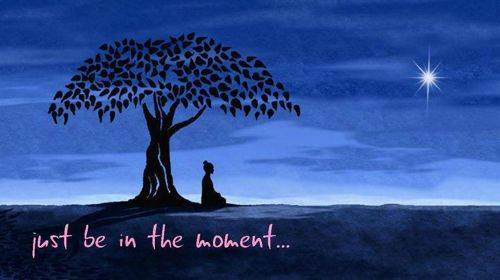Emotional intelligence is the number one key to taking back control of your life, your emotions. Learn how now!
My intention is to create a series of articles over the next six weeks to help you explore and develop EQ. As we develop our EQ, we make better decisions and respond in ways that help us collaborate with others rather than fight against them, making it easier to attain goals.
Part 1: Building the Foundation for Emotional Intelligence
What intelligence has a greater impact on your life than IQ? Developing emotional intelligence (EI or EQ) is one of the biggest factors that can positively impact your life, work and personal, by allowing you to take control of your life. EQ is responsible for so much in our lives- positive and negative, and it is something we can actually develop and change, unlike human intelligence (IQ), which is fixed.
Emotional intelligence is so important that in a 2009 study, TalentSmart found that EQ accounted for 58 percent of performance in all job types. Another interesting fact, people with high IQs outperform people with average IQs only 20 percent of the time, while people with average IQs outperform people with high IQs 70 percent of the time. The critical factor that can explain success better than IQ is EQ. This also explains why 90 percent of top performers are high in EQ.
So what exactly is emotional intelligence?
EQ involves the relationship between our thinking and our emotions, sometimes with the latter getting in the way of the former. EQ has been defined as the ability to comprehend your emotions, emotions of others, and to use that understanding to complete tasks or goals, make decisions, and influence others. Scholars have proposed that EQ is comprised of four branches or skill sets, which are self-awareness, self-management, social awareness, and relationship management.
Benefits of emotional intelligence.
Several studies have shown than EQ is a key component of successful leaders and for anyone in the role of creating a service experience for others. Basically, anyone who interacts with anyone else needs EQ, and that means all of us. Being able to regulate our emotions and understand the emotions of others when confronted allows us to resolve conflict constructively and promote collaborative teamwork. Furthermore, one study found that people with high self-awareness tended to seek feedback from others and understand others better, which in turn made them appear more trustworthy.
So how do we develop emotional intelligence?
One question that has pondered scholars is whether EQ is an ability or a trait. Researchers have concluded that it is both. In one study, after taking a course in EQ, MBA students were tracked for over 20 years on 24 different competencies of EQ. Some students were found to have improved in as many as 50 percent of the competencies measured. One thing for certain is that it takes practice and time to develop EQ. There are numerous strategies to develop EQ as EQ is made up of multiple skills; however, the foundation for developing EQ must be set.
The power of mindfulness.
The foundation for developing EQ is mindfulness. Mindfulness can be used as a tool to help cultivate EQ by allowing us to be more aware. When we are more aware, we can be aware of our emotions and the emotions of people around us. Once we are aware of the emotions, in us and others (self-awareness and social awareness), then we can either be sucked in by the emotions (lower EQ and skills set) or maintain control (higher EQ and skills set) and make decisions from that controlled state instead of the out of control state. So for this first article I will provide you several options to choose from to help you practice mindfulness with the intention of developing EQ.
Option 1: Be mindful of your body and your body language when talking with others or in the presence of others, especially when exposed to stress.
Be aware of and recognize your feelings. What physical sensations do you feel; what thoughts are coming up? Yep, EQ is all about feelings and recognizing them. Do not run from them. Go towards those feelings so that you can see them for what they are and then be able to control them. Try practicing by yourself first. Imagine a person or an incident that gets your blood boiling or your knees shaking (fear or nervousness).
Now, recognize the feelings that came up as you hold that thought. Now breathe through the emotion, accepting it as you breathe fully into your belly, and releasing it as you exhale completely, maybe even with a (HAAAAA) sound. Practice this over and over until the emotion and your attachment to the emotion has decreased so that you can recognize when these feelings get triggered. Breathe.
Option 2: Be mindful of the domino effect of your emotions.
Another technique is to be aware of and recognize the impact of your emotions on other people. Reflect upon and imagine your behavior when you are around a particular person or from a situation that causes you emotional upset. Do you raise your voice? Does your face become more tense? Do you throw or slam things? Or do you just stop talking?
Now imagine the body language of the other people or person when you do those things. Does their demeanor change? Imagine now that you are the nicest person in the world and you treat even this person, and everyone else, with the utmost respect or you look at the situation as a blessing. Imagine yourself treating the person or people with kindness. Perhaps holding the door open, smiling and feeling good when you see this person, shaking hands, or whatever else you can imagine. Next time you run into this person or situation, reflect on these positive feelings- appreciation, empathy, love, and trust. Breathe.
Option 3: Be mindful of your emotional triggers.
Another technique is to be aware of who and what pushes your buttons. Grab a piece of paper and pen or use your phone and jot down all the people and situations that annoy you, or your pet peeves if you will. This list is your starting point to understanding your triggers so that you can do something about them.
At night, before you go to bed, keep a journal of all the issues or people that negatively charged you that day. Reflect on why they upset or annoyed you. What can you learn from it? Now affirm your intention to be mindful of your emotions by saying to yourself, “I am grateful to be mindful of my emotions and the impact I have on others”. Breathe deeply for at least one minute as you repeat the affirmation. Breathe.
Conclusion
Developing EQ is an emerging idea that can help us shift our perspective on emotions and the control we have over situations in our lives. By building a foundation and a habit of mindfulness, we can be more present and attentive without judgment. When we are free to use our cognitive abilities without emotional baggage or judgment, then we can make informed and well-thought out decisions that impact not only our lives but those around us with whom we interact.
Mindfulness is a skill and a tool that anyone can learn how to use. All it takes is practice and patience with yourself. If it feels hard or taxing, that’s because it is. Next time you’re in a pickle, practice mindfulness, and remember to breathe.
References
Azouzi, M. A., & Jarboui, A. (2013). CEO emotional intelligence and board of directors’ efficiency. Corporate Governance, 13(4), 365-383. doi: 10.1108/CG-10-2011-0081
Beigi, M., & Shirmohammadi, M. (2011). Effects of an emotional intelligence training program on service quality of bank branches. Managing Service Quality, 21(5), 552-567. doi:http://dx.doi.org/10.1108/09604521111159825
Goleman, D. (1998). What makes a leader? Harvard Business Review, 76(6), 92-102. Retrieved from http://hbr.org/
Groves, K. S., McEnrue, M. P., & Shen, W. (2008). Developing and measuring the emotional intelligence of leaders. The Journal of Management Development, 27(2), 225-250. doi:http://dx.doi.org/10.1108/02621710810849353
Hobson, C. J., & Delunas, L. (2009). Efficacy of different techniques for reducing stress: A study among business students in the United States. International Journal of Management, 26(2), 186-196. Retrieved from http://search.proquest.com/docview/233228643?accountid=34899
Mayer, J., Salovey, P., & Caruso, D. (2008). Emotional intelligence: New ability or eclectic traits? American Psychologist, 63(6), 503–517. doi:10.1037/0003-066X.63.6.503
Northouse, P. (2009). Leadership: Theory and practice [VitalSouce bookshelf version]. Retrieved from http://digitalbookshelf.argosy.edu/books/9781412989282/outline/2
Sunindijo, R. Y. (2012). Integrating emotional intelligence, political skill, and transformational leadership in construction. Civil Engineering Dimension, 14(3), 182-189. doi:10.9744/CED.14.3.182-189
TalentSmart, Inc. (2009). The business case for emotional intelligence (EQ). [PDF] Retrieved from https://www.talentsmart.com/media/uploads/pdfs/The_Business_Case_For_EQ.pdf
Yu, M., PhD. (2009). Employees’ perception of organizational change: The mediating effects of stress management strategies. Public Personnel Management, 38(1), 17-32. Retrieved from http://search.proquest.com/docview/215950700?accountid=34899
Additionally, check out my interview on Parkbench.com. Meet Amanda – and learn about Dandi Within!
Also listed as one of the Top 3 Hypnotherapy services in Chandler, AZ.
Certified through:









